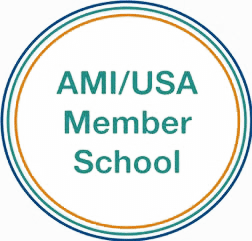
Choosing the path your child will take on their educational journey is a big decision, and it’s important to make sure that choice is an informed one. The education your little one receives will not only have a tremendous impact on their future career, but also on the sort of life they’re equipped to provide for themselves outside of school and work.
If you’re curious about what you can expect from a Montessori primary program for your child, take a look at five of the major principles that authentic Montessori education is founded on.
1. Individualized Learning
Every child is unique, and each has their own way of engaging with the world around them and processing information. Most schools use a standardized style of education, which is beneficial to some and detrimental to others.
But just because your child struggles with a standardized program doesn’t mean that your child is somehow deficient. Many children simply have a different learning style that does not align with the standardized format.
Montessori primary programs emphasize individualized learning, which allows your child to acquire knowledge, develop socially, and discover their own interests in a way that best suits them.
2. Personal Freedom
Standardized education inherently takes away a child’s freedom to learn how they want and how they are naturally inclined to. Every child has their own natural interests and desires, and there’s simply no way to allow each child to pursue those interests when they are all made to learn one specific way.
In Montessori primary programs, children are allowed to move about freely, choose what they want to learn about, and pursue what interests them most. This concept often inspires a love of learning and allows children to look at school as something to be excited about.
3. Independence
The personal freedom that Montessori primary students are allowed helps to give them a sense of independence, which is something that just about every child yearns for from an early age. A focus on developing practical skills nurtures this independence not only in the classroom, but in a child’s everyday life as well.
4. Mixed Classrooms
In many school systems, children are separated by age group for their educational journeys. This makes sense in many ways, as the developmental differences between two children just one or two years apart can be significant. However, Montessori education recognizes the great value of providing children with mixed-age classrooms.
Montessori classes include children in a three-year age range, which allows them to develop unique social skills, build self-esteem, and get a better idea of what life is like in the real world.
Older children are able to develop mentoring and leadership skills and the confidence that comes with those skills, while younger children can connect with and learn from children with more experience.
5. Hands-On Learning
Confining children to a desk and asking them to process new information in a primarily abstract way can limit their development and make it difficult for them to absorb new concepts.
For this reason, Montessori primary programs focus on hands-on learning methods that engage the senses and help students develop a more complete understanding of the subjects at hand.
Montessori Primary Programs at Montessori West
Since 1974, the licensed teachers of Montessori West have proudly provided premium educational programs founded on the principles of the Montessori philosophy designed to nurture a lifelong love of learning. If you’d like to learn more about what a Montessori education can do for your child in the South Bay, contact Montessori West today to schedule a tour.

